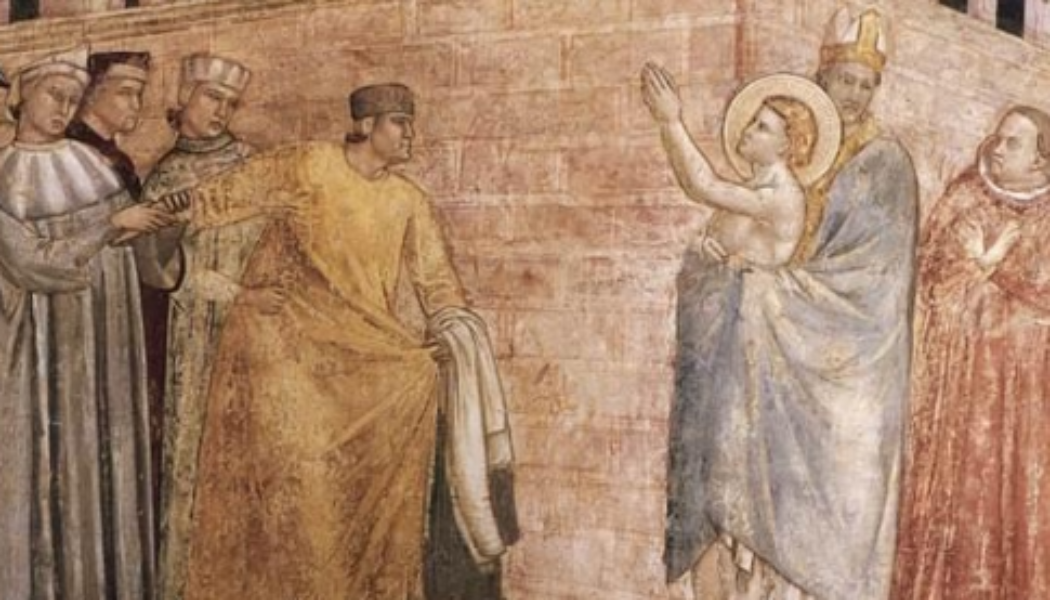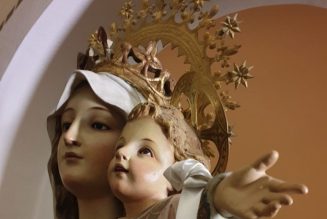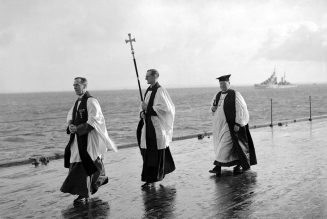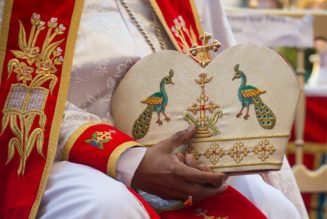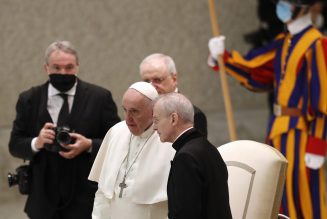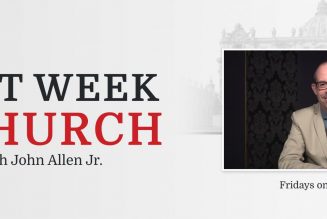
Having wealth is damaging to the pursuit of the kingdom because the very having does something to one’s inner life, one’s very ability to love God for his own goodness and others in and for him.”
― Fr. Thomas Dubay
Today’s Gospel at Mass had me thinking about a homily I heard a few years ago in Omaha on Luke 10:4, which contains Jesus’ instructions for the disciples as he sends them out on mission: “Carry no purse, no bag, no sandals…” The priest said something to this effect:
Jesus forbade the disciples on mission from carrying money or extra things. Even a second pair of sandals. That’s edgy! Why? To lighten their load? Sure, maybe. To teach them trust in God? Okay, that’s true. But I think the deepest reason is rooted in human psychology. When you have possessions, money, extras, things in your wallet or purse, you become cautious, defensive, protective. Life soon becomes defined by installing locks, cameras, alarms, buying guns to guard those possessions. Every person you see suddenly becomes a threat, a potential thief.
How can you see all with divine love, become dispensers of mercy to bring them Jesus? Absurdly naive.
Yet, when you have nothing to hold on to and defend, nothing you fear to lose, you can see people as loved by God — not as thieves but as potential recipients of what you have to offer, which you yourself received without cost. T’ain’t yours, in the end.
Hear Jesus: “You received without payment; give without payment.” “Whoever seeks to preserve his life will lose it, but whoever loses it will save it.” “If anyone strikes you on the right cheek, turn the other also, and if anyone wants to sue you and take your shirt, give your coat as well, and if anyone forces you to go one mile, go also the second mile. Give to the one who asks of you, and do not refuse anyone who wants to borrow from you.”
For Jesus, a whole new economics has been born with his coming into the world.
I scribbled notes after Mass:
This was really mind-bending for me. I think here of the scene in Acts 3:6 when Peter and John meet the beggar: “Peter said, ‘I have no silver or gold, but what I have I give you; in the name of Jesus Christ of Nazareth, stand up and walk.’”
Something really deep here. Poverty frees Peter up to “do Jesus” for the beggar, to give grace which cannot be stolen. And the beggar is unencumbered to receive because he also has nothing. This deserves lots of reflection. Note to self.
It is so exhausting protecting all I have, all the time. It becomes a habitual mindset: “I don’t want to lose what I’ve got.” I define myself by possessions, unwittingly. My worth turns to wor[th]ship of things.
Jesus, with nowhere to lay his head, had nothing to lose. Stripped naked at the end, even of his clothing. From his total poverty he could love us with absolute freedom. Nothing to hold on to, including his life; but “he emptied himself and took the form of a slave.” And St. Paul says: “Though he was rich, he became poor for our sakes, that we might become rich by his poverty.” Not rich to hoard, but to imitate Christ.
Jesus’ words come to mind:
“Do not store up for yourselves treasures on earth, where moth and rust consume and where thieves break in and steal, but store up for yourselves treasures in heaven, where neither moth nor rust consumes and where thieves do not break in and steal. For where your treasure is, there your heart will be also.” That’s wild.
How can I live this? In the details? Live Gospel poverty as a freedom to love, to allow myself see others differently. I constantly protect so many things, beyond money. My reputation, being liked, my comfort. Even holding on to my life through fear of death prevents me from loving another who threatens me. Martyrs are free to love their enemies, to dispense grace and mercy. “Blessed are the poor in spirit.” All rest of Beatitudes just commentary on what Gospel poverty looks like — look at each in detail that way.
How does ditching your purse, bag and sandals even work for me? Not a rejection of legitimate self-defense, possessions. It’s a mindset. Priorities. Different for each, detachment is the key. Not being possessed by possessions. Living simply. Wise steward, generosity. Universal destination of goods. Eucharistic feeds this mindset: “This is my…for you and for many.” This is very challenging in our culture…
